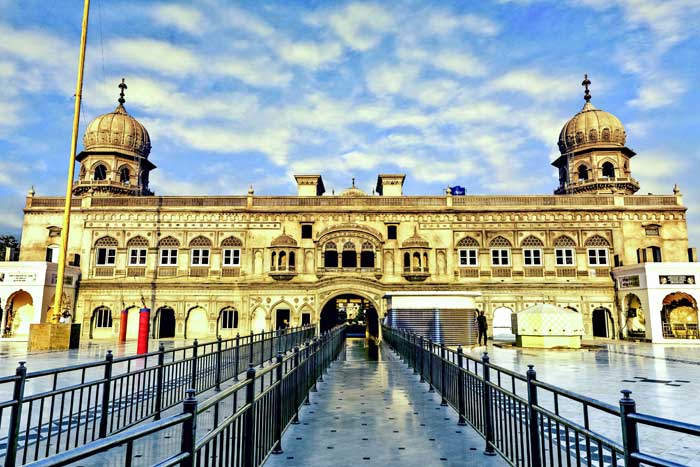
by blogadmin | Oct 5, 2019 | Blog Post, Media Publishing's
While growing up in West Punjab, in India, I cannot recall meeting any Muslim other than the art teacher in the boarding school I attended for five years.
What I knew then about Muslims or Islam was based only on TV, movies, and the printed word-almost nothing.
I could say the same for Pakistan, too, even though my mother was born in Karachi.
While I was doing my undergrad in computer engineering in Maharashtra and Master of Business Administration in vilayat later, I met, or rather came across, many Muslims. Nevertheless, these interactions didn’t change anything much for me. I still had not formed an experienced, a deep opinion about the community.
Until recently, I could never think of visiting Pakistan believing that its leaders and people are far from good and that a non-Muslim is hated and is not safe in the country or among them. A good part of my present 20 years in America only strengthened this belief.
Then, I don’t know why or how, things started to change my perspective and understanding about Muslims and more recently, about Pakistan. I wonder, maybe, if it was celebrating my first Eid in 2013 (the great food should also be given due credit!).
I am an interfaith activist here in the state of Delaware where I live and run the software business I started 20 years ago. From my interactions with local Muslims in interfaith meetings, I started to visit the mosques in the area on invitation during Ramadan or for interfaith meetings called in the wake of attacks against Muslims or any other faith community-locally or abroad. The horrific tragedies of New Zealand and Pittsburgh are two examples.
We in the Sikh community partnered with Vaqar Sharief, his wife, Uzma Vaqar, and other Muslims in 2013 to serve hot meals to the homeless and food-insecure residents of Wilmington, Delaware every fourth Saturday of the month, a tradition of service that continues today.
Over time, the relationship with the local Muslim community blossomed. For the last three years I have hosted an iftar for Delaware Muslims during Ramadan. This year I also participated in four others-three by local mosques and one by the New Castle County leadership.
During Ramadan this year, I shared my experiences with the local Muslim community in an op-ed piece in our local newspaper. I explained why Muslims need to be embraced and not feared or hated. They, I wrote, live, love, work, earn, enjoy and have families just like you and me.
My daughter started college last year in Pennsylvania. Her best friends there are all international students from Pakistan. During the spring break, we loved the experience of hosting one of them whose mother back home is a doctor and her father is in the army.
Unlike many South-Asian peers, I am not a cricket nut. In my school and college days I was a swimmer and hockey player. Nevertheless, as a result of my initiatives more than 13 years ago, Delaware today has two T20 tennis ball cricket leagues. In the season that just ended in September after starting in April, 33 teams competed for the two trophies.
My heart fills with joy and my soul with peace to see men of different professions and backgrounds, with roots in India, Pakistan and Bangladesh, playing together on the same team regardless of international politics.
Guru Nanak, no less, inspired the evolution of my views about Pakistan. My wife and I wanted to visit Nankana Sahib and Kartarpur Sahib this year to participate in Guru Sahib’s 550th birth anniversary celebrations.
When the word about our deeply cherished desire spread, everyone around us with a connection to Pakistan came forward offering to take care of all of our arrangements from airport pickup to hosting to serving as tour guides.
Delaware resident Shafqat Bhatti’s nephew in Lahore went even a step further when he said, “We too are Sardars.”
“How is that?” I asked.
“I am Sardar Wasim Ilyas,” with the pride of a lion in his voice.
I look forward to visiting Pakistan, and I know we will experience the same love and warmth we have found here in America.
Insha Allah, I promise to share that with you after the conclusion of my visit.
– – – – – – –
This column was published online by the www.dailytimes.com.pk on October 05, 2019.

by blogadmin | Sep 28, 2019 | Homeless Food Service
DSAC and friends served our homeless and needy friends on Saturday, September 28th, 2019 at Front N Lombard St, Wilmington, Delaware.

by blogadmin | Sep 27, 2019 | HOPE Dinning Room Food Service
DSAC and friends cooked and served our homeless and needy friends on Friday, September 27th, 2019 at 300 Marrows Road, Newark, DE 19713
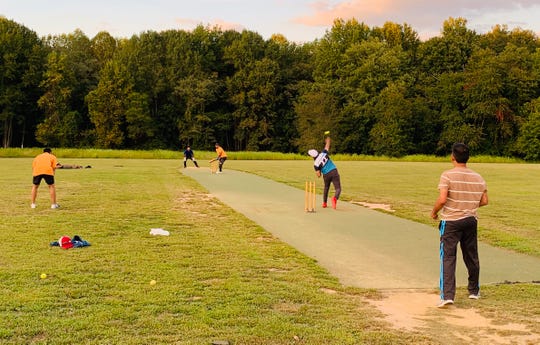
by blogadmin | Sep 23, 2019 | Blog Post, Delaware, Media Publishing's
On a summer weekend afternoon, Area 1 of Lums Pond State Park is in the throes of a ferocious cricket battle.
The grand climax of a match is at hand. In the right hand of the bowler at the north end is a ball; in the hands of the hunched batsman at the south end is a bat. And he is intently watching the bowler.
It might have been this batsman’s jutting backside that inspired Oscar Wilde to quip, “I never play cricket. It requires one to assume such indecent postures.”
The bowler starts to run as he delivers the last ball of the match. Suddenly there is pin-drop silence all around. Teams and their supporters become still — there isn’t even air moving through their noses.
The batsman’s mind is focused on scoring more than two runs off this ball. Only that will crown his team with a glorious victory, earning them a place in the coveted semifinals.
At least 100 cricket players visit Lums Pond every weekend during the season since two pitches were added in Area 3. It is time Delaware politicians took notice of the need and potential.
There are two cricket leagues at Lums Pond: The Delaware United Cricket League, which has been around for eight years, and the Delaware Premiere League, which is two years old. DUCL has 15 teams; DPL has 18.
DUCL’s season started in mid-April, and it held its semifinal matches last Saturday. On Sept. 21, at 11:30 a.m., the Lums Pond Cricket Club will face off against the Gujarat Lions in the semifinals. DPL’s season ended last weekend, when the Master Blasters defeated the Delaware Super Kings to claim the championship.
New cricket game formats are growing in popularity worldwide. The days of five-day-long test matches that often ended in a draw are long over.
Maybe George Bernard Shaw hastened their sunset when he said, “Baseball has the great advantage over cricket of being sooner ended.”
There’s a reason why cricket seems foreign to many Delawareans, says Paras Tiwari, captain of the DUCL’s defending champion team, the Lums Pond Cricket Club. The greater Philadelphia area has lost the passion for cricket that it had a century ago. These days, many think it is a game for minorities.
“All those who are playing here are those who were born, and also raised in most cases, in India, Pakistan, Bangladesh or Sri Lanka,” Tiwari says.
Cricket was introduced in that part of the world in the 1700s by the British. A distant cousin and forerunner of American baseball, it remains England’s national sport.
Some of Delaware’s cricket-crazy immigrants wish there was more local support in building interest in the sport.
“Why is cricket not introduced in schools?” asks Sunil Prashar, an all-round cricket veteran and DSK’s leading light. “Our own children — forget those who have no cricket in families — can’t learn the game without that.There is no academy in Delaware like in neighboring states. There is no indoor facility in Delaware like New Jersey has. That restricts the game to only a few months in a year.”
Major Minhas, who is one of DUCL’s main organizers, agreed that lack of facilities is a problem.
“We don’t have enough cricket pitches to play,” Minhas said. “One of the reasons why I supported Matt Meyer’s election was he promised one or more cricket pitches (cricket fields) in the county parks. But nothing so far.”
America has a closer history with cricket than you might think. Former President Ronald Reagan, who was “addicted” to cricket, thought it was “Buddhism made visible.” He was fond of using cricketing imagery and lingo.
“He also once said … that the most dangerous thing in the world, after Communism, was a rising ball outside the off-stump,” one former adviser was quoted as saying.
Cricket allowed Reagan to cozy up to Margaret Thatcher — unbeknownst to him, she knew a duck (zero in cricket) about cricket.
If you’re looking for something different, come and take in one of the cricket matches at Lums Pond. Perhaps you’ll even learn some of the sport’s terms that intrigued a former president: silly point, fine leg, short leg, slip, gully, googly, silly mid-on and silly mid-off, just to mention a few.
– – – – – – –
This column was published online by the www.delawareonline.com on September 19, 2019.
Also, published in Newspaper on September 21, 2019
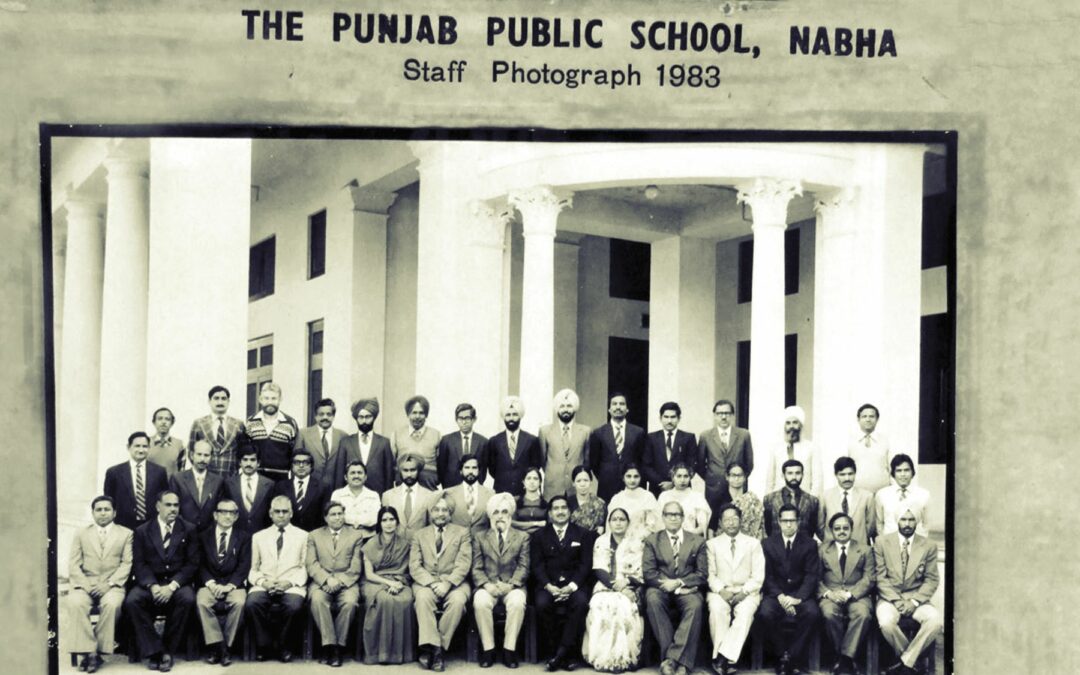
by blogadmin | Sep 6, 2019 | Blog Post, Media Publishing's
The Punjab Public School (PPS) in Nabha, is a great institution for reasons beyond its enviable infrastructure and stellar alumni such as Indian Army General Bikram Singh, or Hero MotoCorp Managing Director Pawan Munjal, or Wharton professor Jagmohan Singh Raju.
I was a student here for five years, beginning in August 1980. Most of the school’s success must be credited to its teachers, including founding headmaster JK Kate. One such teacher who must be given his due is KMP Menon; he taught economics.
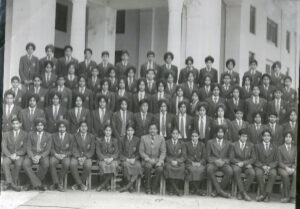
Beas House picture (Mr Menon, with senior Beas House as its housemaster; sitting in the center, in this 1986 picture).
Several of Mr Menon’s students remember the way in which he reached out to them in times of desperation. They always reiterate how Mr Menon offered his help with love and grace. Even in the classroom, his approach to teaching economics was unique. I can vouch for this even though he never taught me. I had only experienced him when he came as a substitute teacher to my class.
I was in class 9. “How many of you know that Nizam of Hyderabad was the world’s richest man in his time?” Mr Menon had asked the class.
What he went on to narrate has never left me since that day in 1984. “Here is one of the ways in which he became the wealthiest: The Nizam was a smoker. He loved smoking expensive cigars. However, his frugality didn’t allow him to spend on them. Can anyone guess how he still enjoyed the most expensive cigars without spending a paisa on them?”
The clueless class looked raptly at his dark and calm face who wore a thick mustache, with curly hair nestled atop his head.
“He smoked the remainders his guests left in the ashtrays!”
I retold the story to a few visitors in Bangalore on 17 June 2015, as I sat by the bed of an unwell Mr Menon. My audience included my PPS companions, Naveel “murda” Singla and Deepak “thakur” Singh, in the room of the teacher’s younger daughter Mini’s house. Mr Menon squeezed my right hand after I finished: “You still remember that,” he said in a whisper, as tears streamed down his face.
As we were leaving, Mrs Menon stopped us and gave us a message from her ailing husband: “Waheguru Ji Ka Khalsa Waheguru Ji Ki Fateh!” This time, I couldn’t hold back the tears.
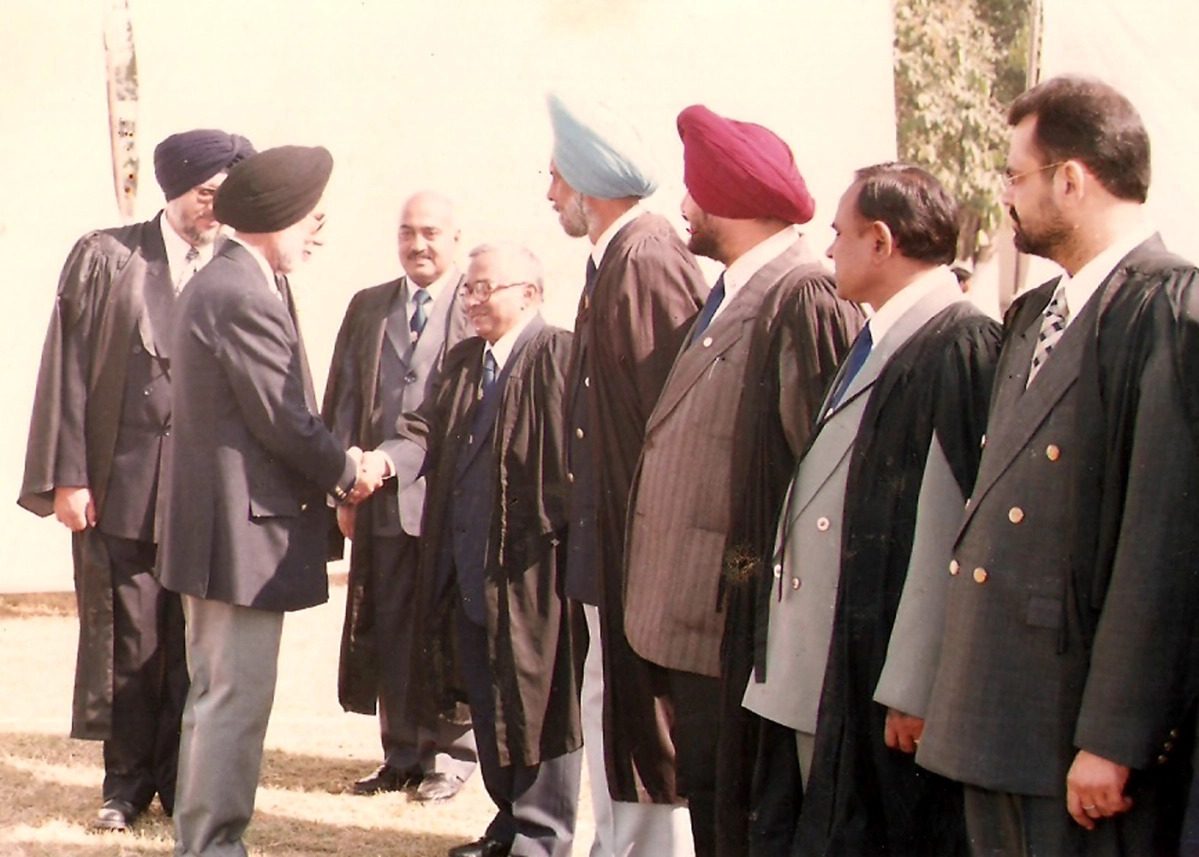
The school Headmaster, Mr. Manjitinder Singh Bedi, an old Nabhaite himself, is introducing the Founders’ Day chief guest to Mr. Ram Singh.
Mr Menon, the “Kindest Father”
Until then I had not understood how seriously ill he was. The following evening, as I had just started to sip my whiskey, the phone rang. It was Mini. Her father, Mr Menon, had passed away a few hours ago. I was in shock.
Mini also commented that after our visit the previous day, “Mom said your visit had brought a divine calm and joy on his face she had not seen in a long-time.” Both his daughters, Mini and Mickie, are still not “in a space to even have a photo of him in the house.”
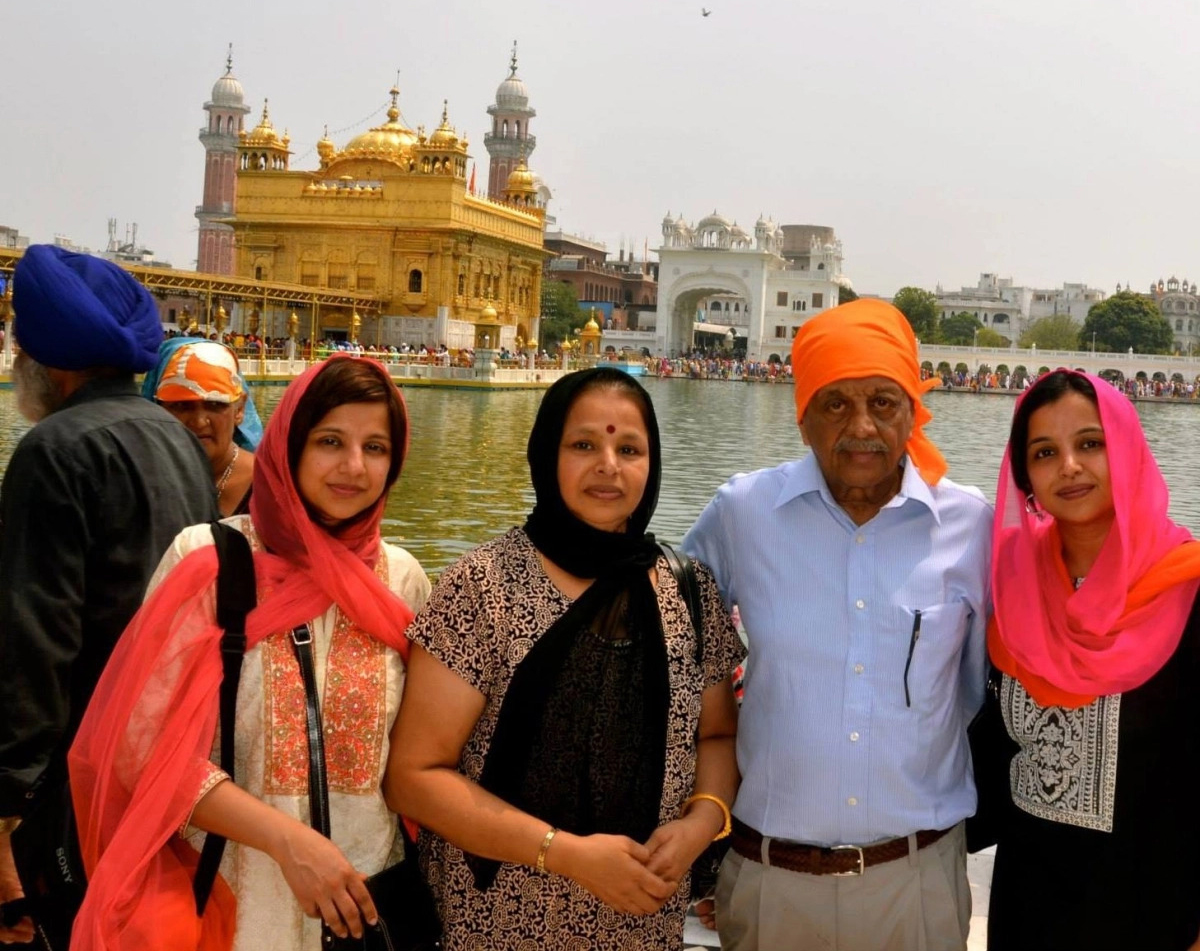
Mr. Menon with his wife and two daughters visiting Golden Temple in 2017.
Said Mini of her father: “…kindest, most intelligent…the words dislike or hate never existed for him…had the most amazing Wodehousean sense of humor…I changed forever the day my dad left me. He wouldn’t have liked it at all. But that (is) the downside of having the perfect person as your father…”
How We Earned Our Nicknames
Another teacher in this legendary league was Mr Ram Singh.
Though I can’t say how many inches over four feet he was, he towered tall, and not only for those he taught mathematics to. His “kakaji” shouts echoed through the senior Jumna House for which he was housemaster, even in the winters — his well-known ‘enemy’.
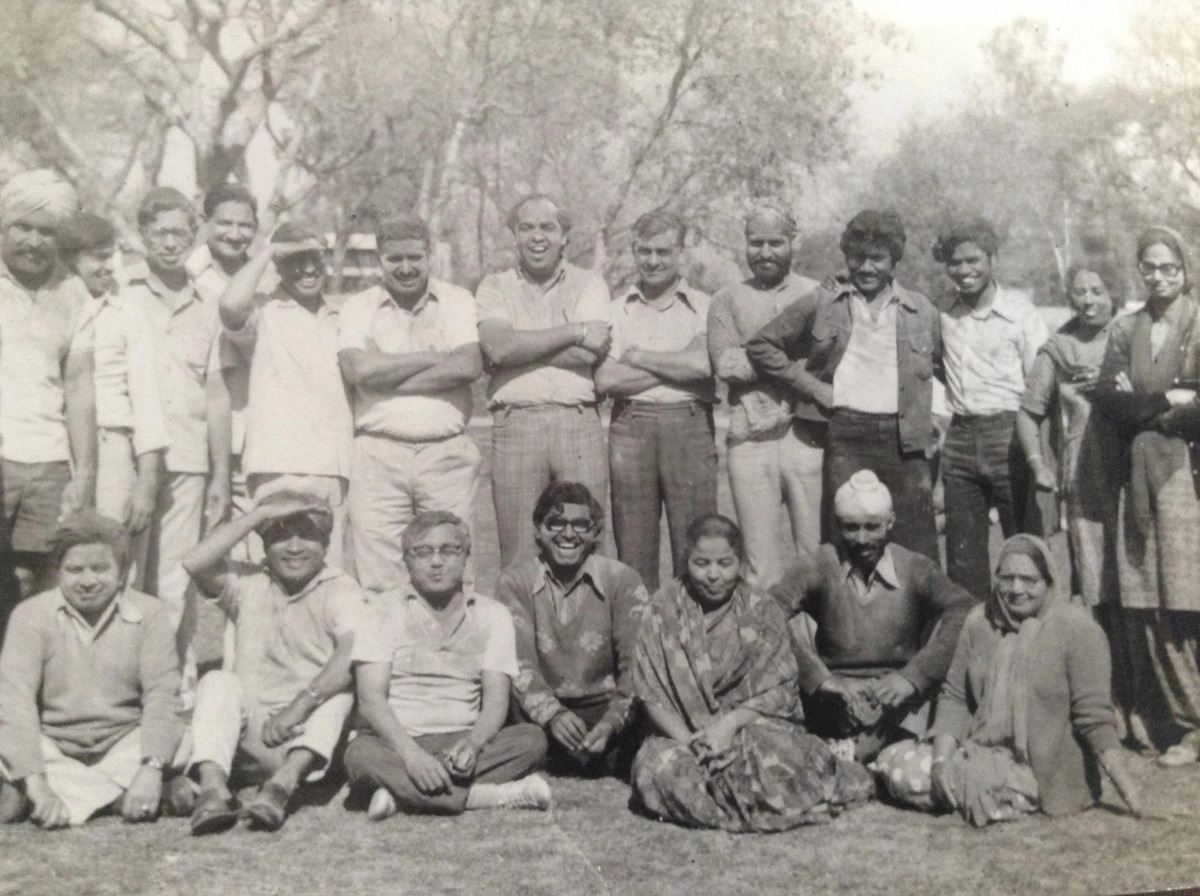
Mr. Ram Singh sitting third from left. (This picture was taken during the P.P.S. staff colony Holi celebrations in the late 1970s)
All of us in the school, especially the overwhelming majority who were boarders, were soon given nicknames by our peers, upon joining the junior school in classes fifth or sixth. My friend Rajesh “panditji” Sharma, who lives in Brampton, Canada now, was gifted his ‘middle name’ by Mr Ram Singh.
“Since I joined the school in eighth along with our Appu brothers, Rahul and Ashish, Mr Ram Singh asked me my name in the math class. When I told him, he went, “Oh, so you are panditji,” and that was that. Hardly anyone knew my real name, and that stays true till date. “A few of my neighbors here call me that because they have overheard my wife using it at times,” Panditji told me over a phone call on 4 July.
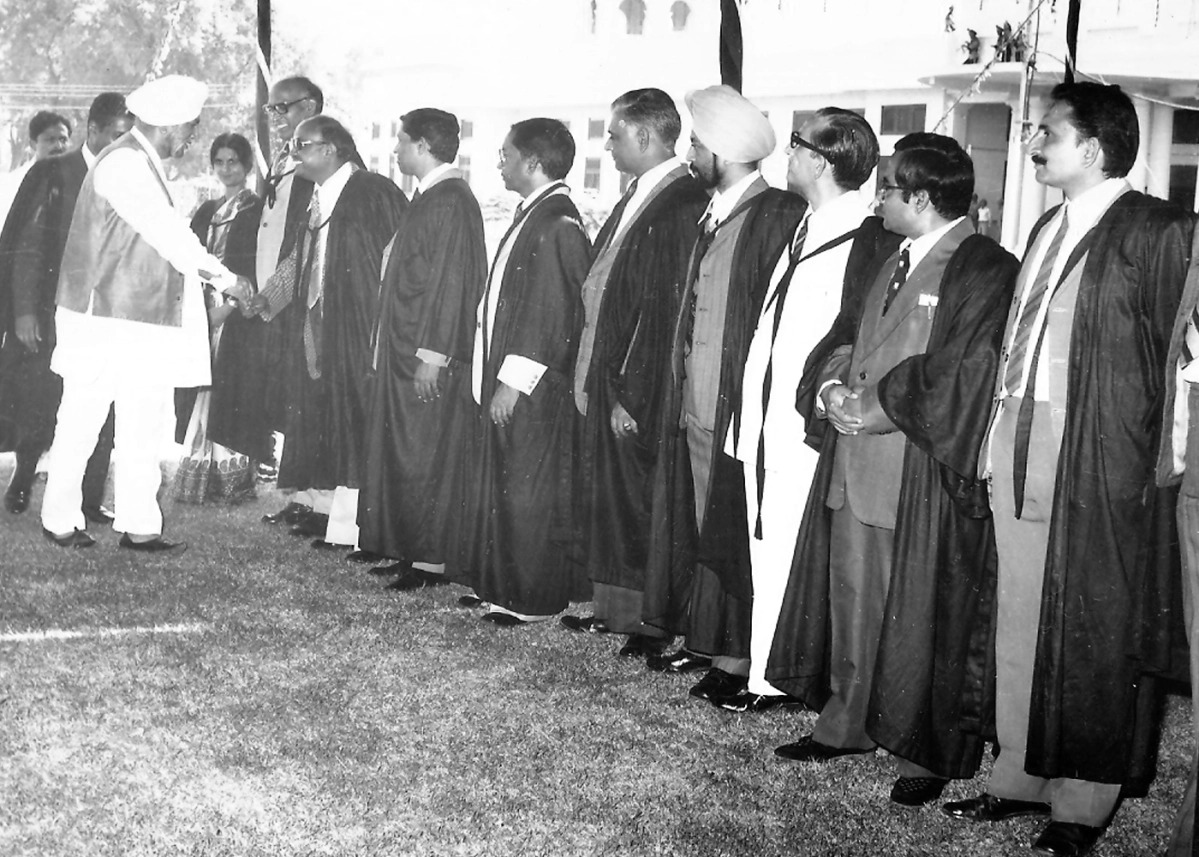
During Founder’s Day celebrations, Senior Master, Mr. Y. P. Johri, introduces the chief guest. Mr. Ram Singh is second from right, clasping his hands together over his belly.
Mr Ram Singh: A Stickler For Honesty & Integrity
I was home enjoying the American Independence Day holiday that Thursday. When I checked our ICSE ’85 WhatsApp group, I saw that Panditji had posted, informing us of Mr Ram Singh’s passing,
“Here goes another pillar,” I mumbled, and heaved a deep sigh.
Though Mr Ram Singh retired ages ago, he still lived in Nabha in a rented house with his wife. His only child, Pappu (Abhijeet Singh), lives in Sydney, Australia, with his wife.
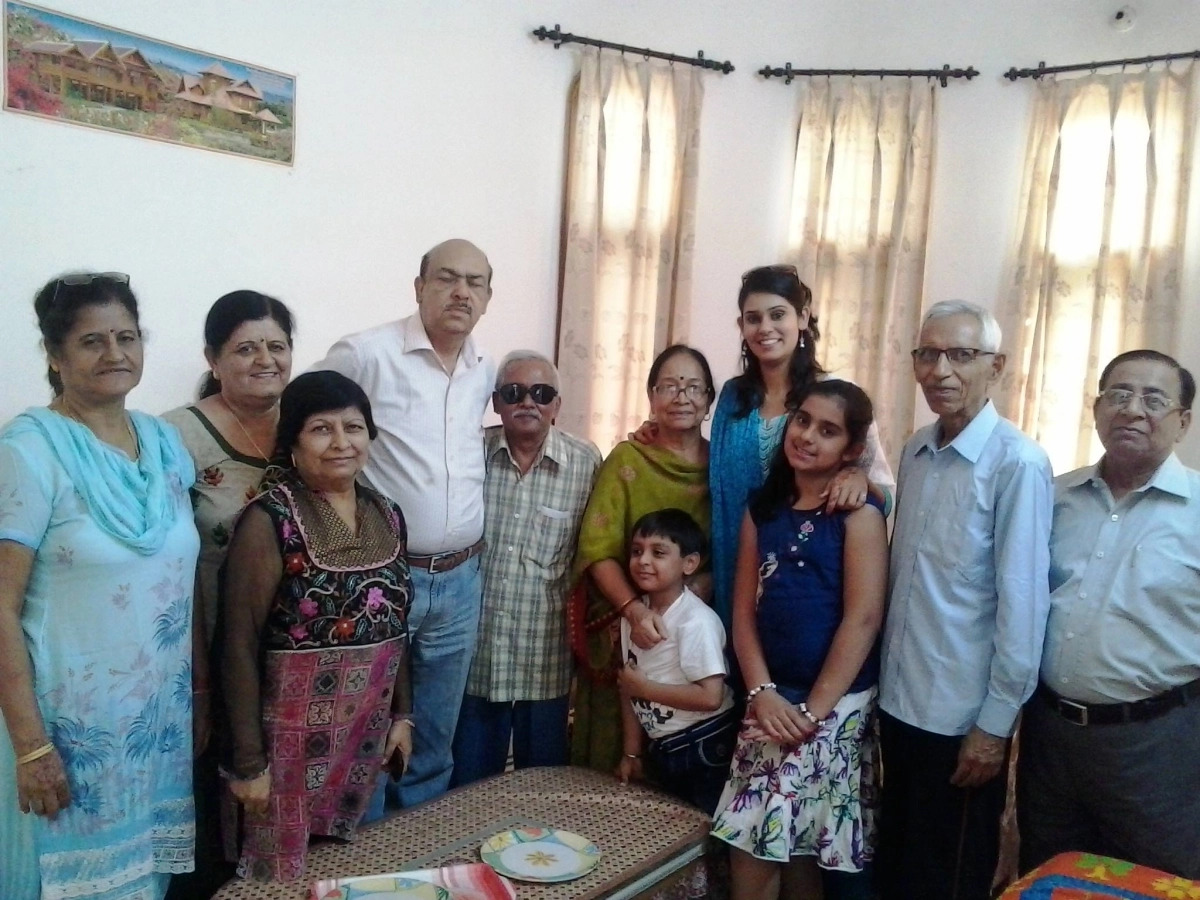
Mr. Ram Singh in the middle in black glasses, with his wife and three former P.P.S. colleagues and their families. An early 2013 picture.
Shivraj Singh “Binnu” Brar, presently security chief of the State Bank of Patiala, after his retirement from the army, also has stories about Mr Ram Singh, who was his Jumna House housemaster.
“It was raining one day when Mr Ram Singh came into the house for a random tour when there was almost nobody in the house. He closed his umbrella and left it standing top-down against the wall of the entrance. We put it high up somewhere. When leaving, he could see it but couldn’t reach it.”
Binnu was good at many things, but academics was not one of those.
“Mr Menon was too good. Once I was trying to cheat in an exam and he was on duty in the exam hall. He came and gave me the book itself. When that didn’t end my struggles, he helped me find answers. With Mr Ram Singh it was slightly different. Once I copied Sukhwinder Singh “Sukhi” Grewal’s answers during our mathematics exam. When we got our papers back, Sukhi got 90, and I, only 45,” said Binnu, who had, at the time, indignantly gone to Mr Ram Singh with his grievance.
“If you can, right now, do even one of them correctly, I will give you 100,” Mr Ram Singh shot back.
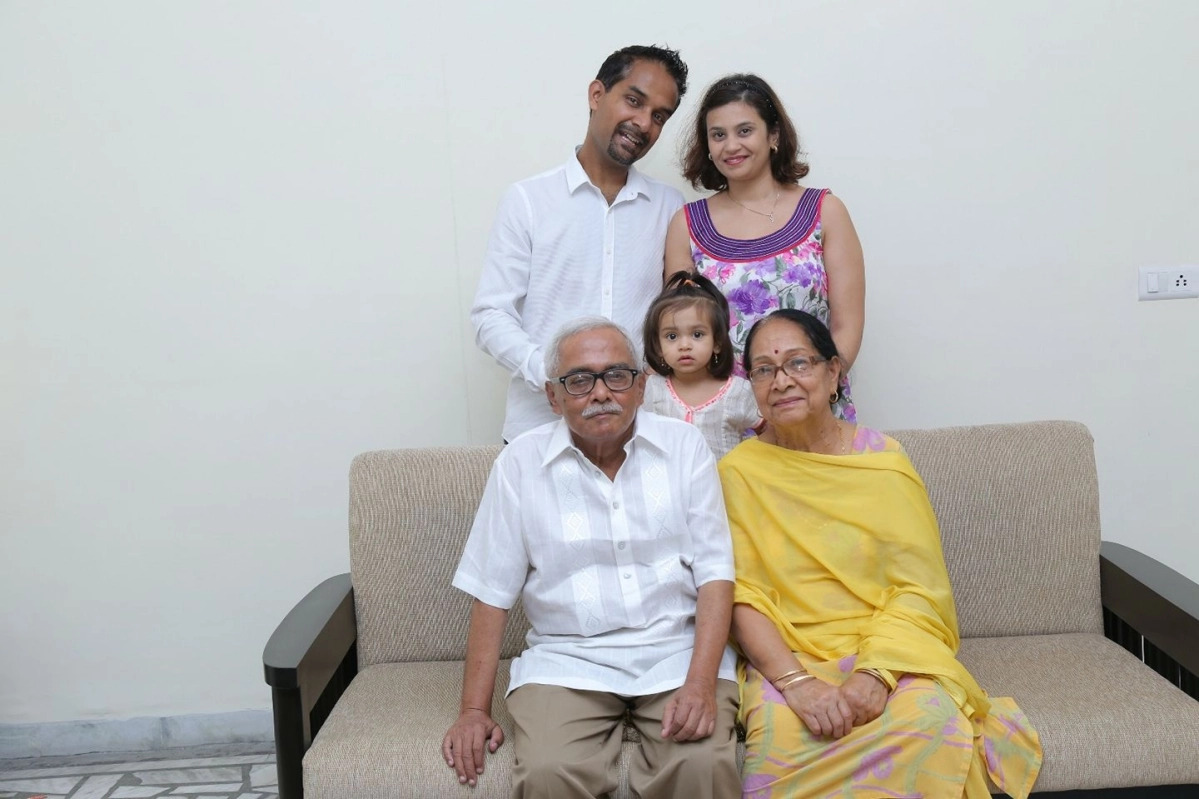
Mr. Singh with his wife, son, daughter-in-law, son, and grand daughter in this December 2017 picture
How Two ‘Outsiders’ Stayed Back to Teach in Turbulent Punjab
“Mr Ram Singh had a special place in his heart and mind for farmers’ children. He went out of his way to help them and cajole them into doing something. I was part of the school band. Rumor has it that you had to at least fail in three subjects to qualify in the school band,” Binnu said. “Mr Ram Singh would tell some of us from the villages, ‘at least go join the school band.’”
While Mr Menon was from Ottapalam in Kerala, Mr Ram Singh hailed from Allahabad – in fact, Amitabh Bachchan’s dad taught him English when he was in college at Allahabad University. Their roots help explain why these two teachers are so revered. Punjab and the Punjabis were hapless victims of the senseless violence in the 1980s. These two “outsiders” stayed on to take care of and support us even when many Punjabis left in search of peace and security.
How can a school or its students ever repay such luminaries?
– – – – – – –
This column was published online by the www.thequint.com on September 04, 2019.













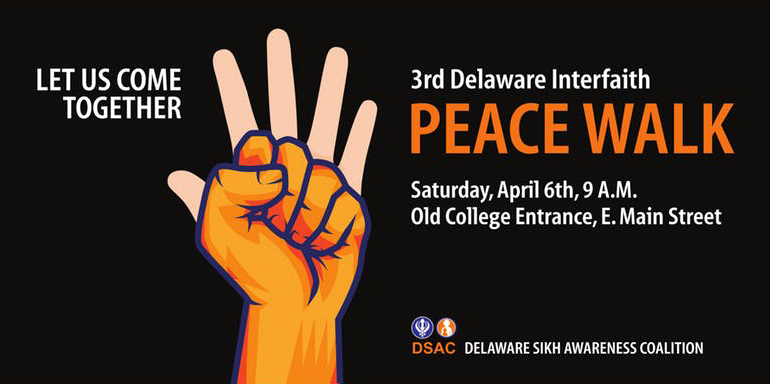
Recent Comments